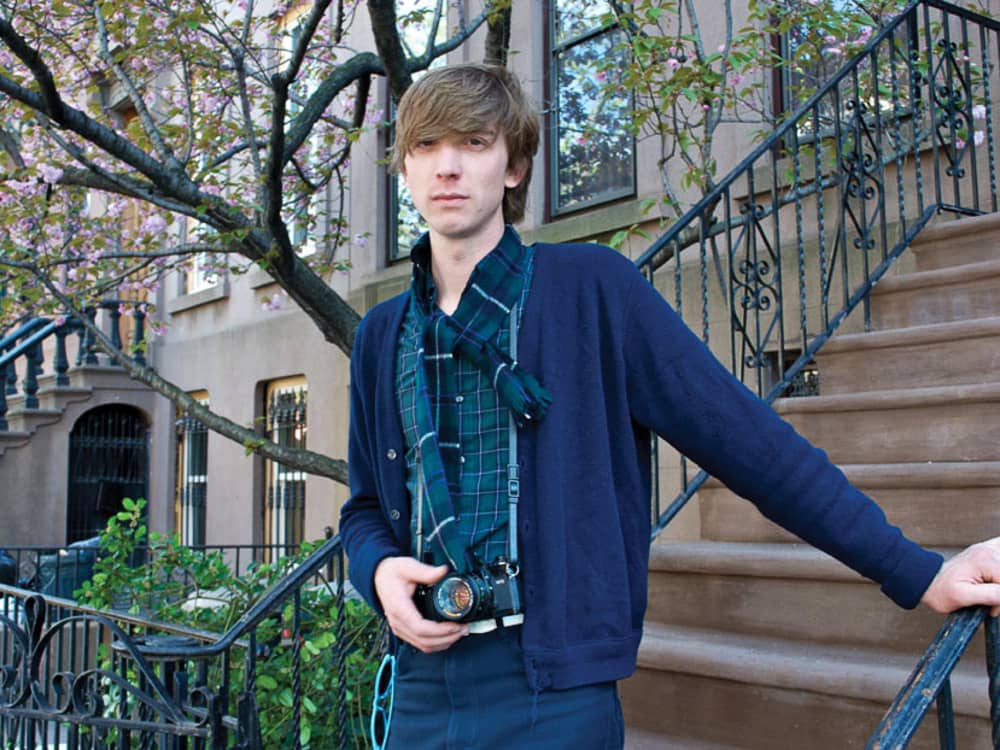Trendysomething in SoMo
Missed Connections: The social casino of Chatroulette
 For Jon's fake profile pictures, we searched 'Montreal brooding' on Flickr.
For Jon's fake profile pictures, we searched 'Montreal brooding' on Flickr. On Words with Friends, you never know who's on the other side of that virtualScrabble board.
On Words with Friends, you never know who's on the other side of that virtualScrabble board. "On the Internet, nobody knows you're a dog" is an adage which began as thecaption of a cartoon by Peter Steiner published by "The New Yorker" on July 5,1993.
"On the Internet, nobody knows you're a dog" is an adage which began as thecaption of a cartoon by Peter Steiner published by "The New Yorker" on July 5,1993.
It was September of 2006, and Facebook had just made the crucial crossover from college connector to international networking site. No longer was a .edu email address an obligatory first step to an account.
Now anybody with an e-mail address could access the realm of Facebook — including not-so-real email addresses. Of course I pounced on the opportunity to create a false Facebook personality.
After a few Titos and Crystal Lights (I was barely 20!), my friend JPatt and I devised an entertaining character by the name of Jon Stephens.
Jon was what you could call a "Whole Type of Person" — a beyond-artsy bookbinder kicked out of the University of the Canary Islands for staging a misguided political coup, and now living in a warehouse in East Montreal. His interests ranged from the mysterious to the devastatingly obscure: Earth art, Mesoamerican creation myths, Nina Simone and Nietzsche quotations.
Jon was the epitome of pretentious intellectualism — basically, our dream guy.
Never one to take on a project lightly, I even researched a respected bookbinding workshop in Montreal. In a matter of days, Jon received a friend request from a fellow named D'Arcy who worked at a competing Montreal papeterie. Guilt-stricken, we sent a message to D'Arcy explaining that the whole profile was a play on pretension. D'Arcy was delighted and shared the character with his posse of culturally savvy Canadians (we later learned that D'Arcy had developed an intense crush on Jon that precipitated his coming out to his friends).
Before we knew it, JPatt and I became the darlings of Montreal's indie community, receiving friend requests from thespians, anarchists and back-up banjo players. We became the poster-children for Entry No. 75 on Stuff White People Like.
I took on the task of driving up to Montreal from New York the following summer to fulfill our Quebec destiny. But after car insurance complications on the border, I found myself marooned on a Vermont campsite, far from my online buddies.
D'Arcy & Co. sometimes appear on my Facebook newsfeed, but otherwise, we've fallen out of touch.
Ever since that fateful day at the border, it appears as though I've lost my Internet "game", so to speak. Missed connections on the World Wide Web have become my forte. This pattern extends to the geek's favorite iPhone application, Words with Friends, which allows friends to play Scrabble with one another, or, for the virtual extrovert, attempt a match with a stranger.
Words with Friends isn't exactly the future of social media, which is fortunate, because strangers confronted my requests with stinging declines. Even when I was able to establish a connection, I would either be matched against impossible international Scrabble stars (who'd give up on me by the third move) or perverts attempting sexting via Scrabble. My teammates were not there to make friends, and invitations to socialist utopias were nowhere on the horizon.
Enter the latest Internet phenomenon: Chatroulette, a Web site that pairs random strangers for webcam-based conversations. I was hoping for serendipitous connections with global tech-savants, but what I got was a lot of phalluses in my face, quickly followed by chat rejections. My experiment unravelled into a random Russian roulette-style social suicide, which is fitting, as the site's founder is a 17-year-old high school student in Moscow.
The few times I got somebody to stick around, I was highly entertained by what I found: A dorm room full of sophomores at Rutgers insisting that I take a hit of their bong via webcam, a middle-schooler in LA asking if I manscaped, and a guy in Lyon who attempted to teach me a bit of conversational French. Still, the majority of hits involved a dark bedroom scene with a young man ready for a webcam wank. I now reserve Chatroulette as a joint activity so that such characters are immediately warded off (signing on to the site with a group while hottubbing is a sure-fire way to make and keep friends).
Despite the laughs to be had, I've learned that no matter the outlet — fake Facebook personalities, iPhone apps or voyeuristic video chat — lifelong friendships are not just waiting to be snatched up on the Internet. Web surfers are either flaky, unreachable or supremely shady. The anonymity is appealing, but it's ultimately disconcerting to realize that when it comes to the Internet friendosphere, I'm just another face in the crowd. As the old adage goes, "On the Internet, nobody knows you're the Trendysomething in Somo."
